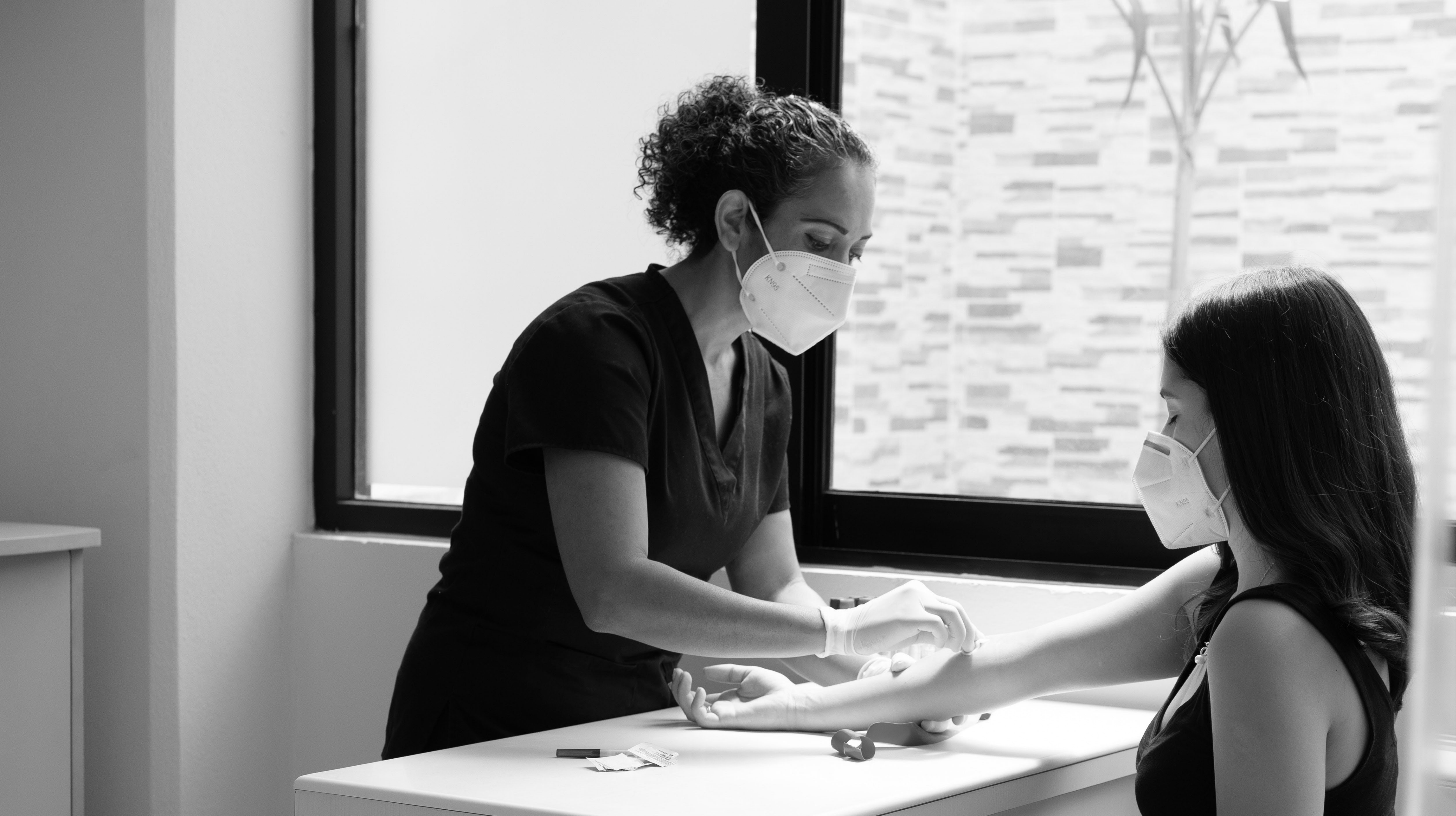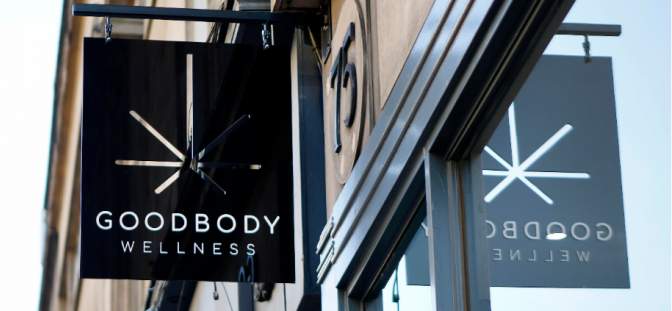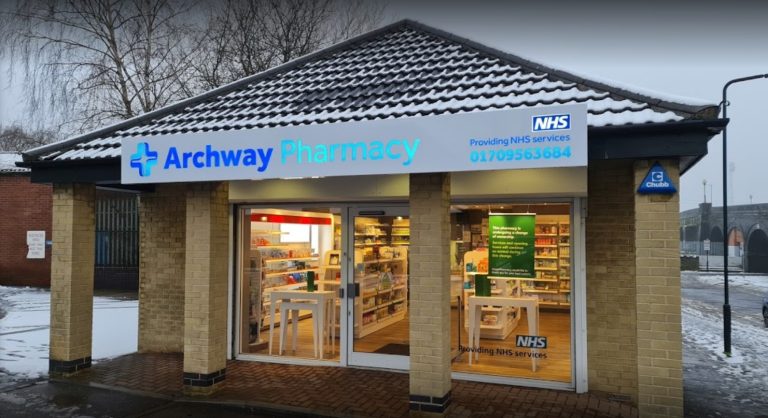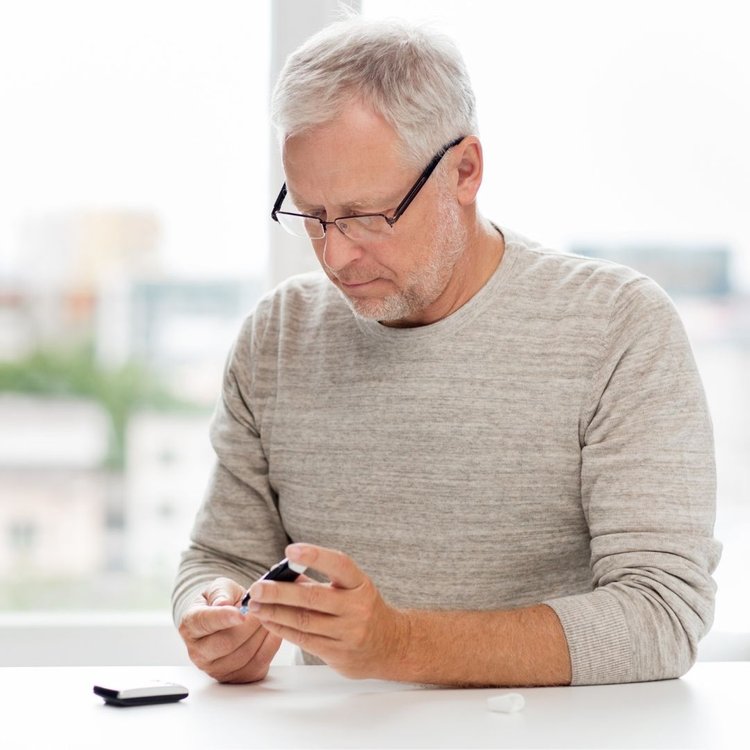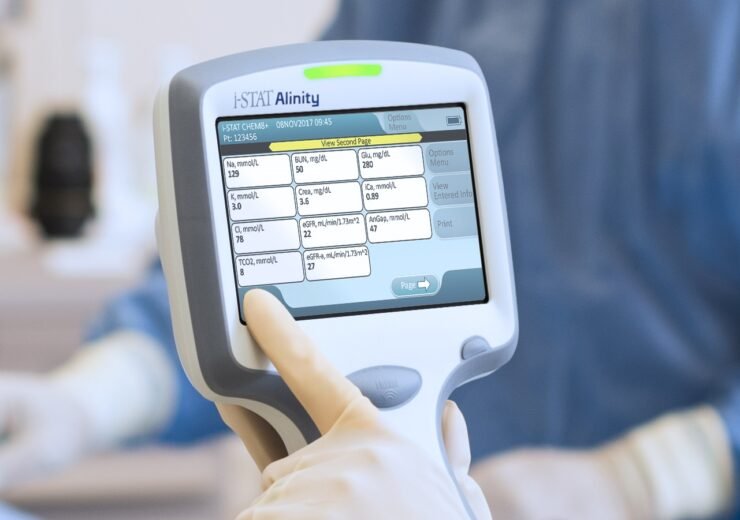Goodbody Health Inc (AQSE:GDBY) Scientific Advisory Committee Member Dr Jamie Brosch caught up with DirectorsTalk for an exclusive interview to discuss his background as a GP, how the company’s partnership with independent pharmacies will support the NHS, how they differ from others in the market, , GP referral scheme, how blood testing will help individuals to manage their health properly and how can those results impact on a person’s long term health.
Q1: Jamie, we’ve not spoken before so could you just introduce yourself and talk about your expertise as a highly experienced GP?
A1: I joined Goodbody Health about nine months ago, initially as an advisor and then moving over into a formal role as Chief Medical Officer, as their aspirations have grown.
As you say, my prime background is general practice, I was a GP partner in Wilshire for 20 years, but latterly, I had shared interest as I became Medical Director of the growing out of hours service once the GP contract had changed. That was our own business, it went through a very rapid evolution, and became a much more expansive urgent care business.
So, as well as being a common or garden GP for many years, I’ve also got a very good crow’s nest view of the challenges in the NHS at the interface between primary and secondary care.
Q2: How do you see the company’s partnership with independent pharmacies supporting the overstretched NHS?
A2: Well, you’re absolutely right, the NHS is under increasing pressure. I think we’ve all been made very well aware of it by COVID, but I think it’s been something of a perfect storm and COVID has been the final straw that’s to some extent broken the camel’s back.
I think all of us, as patients, find that it’s very, very difficult to get straightforward advice in a simple and accessible way unless something is really life threatening or very urgent. I think that pharmacies have always been recognised within the NHS as being part of the answer potentially, but they haven’t always been given the tools to do the job, and I think that one of the advantages of the partnership and the facilities that we can put into pharmacies to allow patients to access easy testing and get quality results and guidance means that that really equips pharmacies to become a very credible first point of contact patients. That of course will take quite a lot of pressure off primary care, particularly GP practices, and Accident & Emergency departments because it gives patients who are prepared to go down this route the opportunity to take steps themselves.
The other thing just to say on that is that I think the independent pharmacy angle is important as well because independent pharmacies, they have slightly more skin in the game and you tend to get more continuity in terms of who the pharmacists are, there’s more of a continuity of offering for patients. Patients have always recognised that pharmacies are a trusted source of medical advice, they’re accessible, they’re convenient and with independent pharmacists, there’s a consistency of offering which makes it a highly credible alternative.
Q3: It’s also a lot more relaxed as well in the pharmacy, as opposed to going and sitting in front of a GP or a doctor, and you always feel a little bit nervous when you sit in front of a doctor.
A3: Yes, the white coat phenomenon. I think you’re right and I think when patients, or in this case customers, are given the opportunity to facilitate their own health, there’s a sense of empowerment about that. I think it is a very different dynamic from going to see the doctor or going to A&E when you perceive that you might be ill, it’s more about managing your own health and wellness, and that’s a very different dynamic.
Q4: So, what makes Goodbody Health different to other offers in the market?
A4: That’s a good question. It’s something that I looked at quite carefully when I first joined because it is a very crowded marketplace, certainly the private blood testing or general testing market. If you go online, you can find dozens, if not hundreds, of competitors, all seemingly offering fairly similar services. When I did my own due diligence before taking on the role as Chief Medical Officer, I was very key to be sure that I was working for a service that was credible and head and shoulders above what else was out there.
The company’s got a pretty unique profile. There’s a track record of scientific rigor in testing and production from their cannabinoid businesses, they’ve got a strong ethos of customer service and professionalism from their high value COVID testing business and increasingly, I’d like to think partly facilitated by me, there’s a growing ethos of governance within the organization so that’s clinical governance. They have very strong information and data governance anyway, and inevitably strong corporate governance, but those are things that you don’t necessarily see in small online businesses and those are the things that are going to become increasingly important and differentiate those businesses that are going to stick around and grow in this marketplace.
The company is trying to offer the complete package and I think one of the things that I’ve insisted on from the start is that it needs to sit comfortably alongside the NHS, it needs to try work in partnership with NHS services so patients can choose from a menu if you like, and in certain situations, they’ll go down the NHS route, but where it’s more convenient, they can choose a private route using our services. When they then need to go back into the NHS, that the information that they’ve gained is recognised within the NHS and is seen as adding value by NHS clinicians, not seen as actually creating more complexity and difficulty. I think that’s really important.
Q5: Do you think that’ll be the case?
A5: Absolutely. I think the way the business is being modelled is absolutely with that in mind.
You’ve alluded to the relationship with pharmacies, which is a good start, and then I think other relationships and partnerships and the way that the high level of governance are the things that will convince NHS GPs and NHS hospital practitioners that results and guidance that patients have already got privately through the company are valid and should be taken seriously.
Q6: Do you feel that the blood test offer by the company and the results will help individuals to start managing their health properly?
A6: Absolutely. To be honest, I wouldn’t have taken on this role unless I felt comfortable that there was unequivocal benefit to customers and to be honest, as I just hinted really to the wider health community.
Part of my job is to ensure that the tests that we offer and the way we direct customers to particular tests that they’re appropriate and valuable for them and it’s not just a hard sales pitch, if you like that. That they get prompt results from those which are reliable and helpful and that any guidance which is required, based on those test results, is safe evidence-based and well curated.
Primarily, we’re aiming at the wellness market, we’re trying to help people who perceive themselves as well and keep that that good health. We’re not really primarily aiming at people who are already ill. They’re better catered for, by and large, by the NHS in the bulk of situations, clearly there is a grey area between those two.
So the bulk of people who take on tests through the company will get reassuringly satisfactory results, which is great, and they go away knowing that these markers are satisfactory and that gives them reassurance. There’ll be a small number who turn out to have overt ill health that they didn’t know about, and they’ll need to be directed quickly to healthcare services and then possibly a moderate cohort who’ve got slightly abnormal results that need further guidance and or investigation and the key thing is how we deal with those. I think we are very well placed to deal with those by offering appropriate guidance and/or follow up whether that’s privately or back into the NHS.
So, largely I would think that the value to users of our service, the bulk will be reassurance but then there’ll be a small number as well where that early detection is really valuable information to enable them to take control of their own health.
Q7: What are your views on the GP referral scheme?
A7: I think it’s essential and again, it’s one of the differentiators between us and other services. My experiences as a GP, I suppose a lot of NHS GPS are a bit cynical, if not sceptical actually about private testing services and see them as just potentially creating more work for the NHS because they just feed the anxieties of the worried.
Clearly, we are setting up our offering very much in mind to try and avoid that but there’s no doubt that some of those patients, perhaps let’s say a third of all tests will come back as having some level of abnormality that needs further advice or discussion. If we channelled all those back to see their own GP, all we’re doing is putting more burden on the NHS rather than reducing the burden on the NHS.
If you’ve paid for a private blood test, because you want a quick and convenient answer, you don’t then want to have to argue the toss to wait six weeks for GP appointment to discuss what might turn out to be a trivial abnormality.
So, having the option for patients to seek out trusted advice from a private online GP referral system is a really useful addition. Patients don’t have to do it, they can go back through the NHS route, or if they’ve got more serious or pressing health concerns that are identified, that would be the guidance they’d be offered. For the vast majority, I think the option to then go the next step and say, yes, actually I’ll talk to a credible GP service online promptly and find out whether this is something that needs action now, or whether it’s nearly something that needs retesting after a period of time or something that I needn’t worry about at all. That helps to provide the complete package, and as I said before, I think providing a complete package is one of our key differentiators.
Q8: You touched on this earlier a little, but how do you use your own knowledge and experience to contribute to the company’s Scientific Advisory Committee?
A8: The Scientific Advisory Committee has been one of the major attractions for me actually, because it’s really nice to sit in a room with people with other skills. So, there are individuals on that committee with very strong, scientific and research backgrounds and knowledge, pharmacology, chemistry and obviously financial and commercial as well.
So, my role really is to bring my rather pragmatic day to day skills and I referred to this crow’s view I’ve had of how the NHS works and how patients navigate NHS or perhaps more important, sometimes struggle to navigate. So I think my voice there is very much about what would the GP in your street think, what would the average patient think, what will be acceptable, what will patients tolerate and accept, what do they want, but also which steps would fit well with this NHS integration that we’re after and which steps would alienate us from the NHS.
So, it’s quite a pragmatic view that I bring, it’s not very high tech, it’s not very academic, it’s just that experience of 30 years as a practicing GP and understanding what makes the service tick and what makes individual patients tick.
Q9: Goodbody Health have the ability to detect a number of things. One of the technologies are to detect early prediabetes and to measure cholesterol levels, how can those results impact on a person’s long term health?
A9: Very much, it’s interesting you should ask that because as I said, primarily we’re aiming at the wellness market, but this is one of these areas where these are patients who think they’re probably well, but it may be that they have some anxieties, they’ve read something or there’s a strong family history, and they haven’t been offered any screening within the NHS because they don’t meet the screening criteria.
Raised cholesterol and prediabetes, these are things for which you don’t experience any symptoms so you wouldn’t have any warning signs necessarily. They’re clearly ready as being key modifiable risk factors for ischemic heart disease so heart attack so early detection is very valuable. Early detection allows early intervention in terms of lifestyle changes, and sometimes medication and early intervention leads to improve outcomes so patients who, for whatever reason, have a higher level of concern or just are keener to have that level of knowledge and empowerment, these tests which are very simple, give very reliable results.
Again for the majority, it’ll lead to normal results and reassurance, but for a small number where they’re abnormal, then knowing that you’ve got these things means that you can seek appropriate guidance in terms of improving your lifestyle and reducing risk, or even if you’re slightly further down that risk spectrum, seeking medical advice as to whether you need any furthermore specific treatment. That significantly, for those patients and call them patients now because we’ve identified there is potentially a medical issue, for those individuals or patients that early detection will substantially improve their outcomes over time.


